As London’s economy starts to reopen following months of restrictions, we offer insights into how London’s circular economy has been affected, specifically where it comes to small and medium sized businesses (SMEs). We find that, while COVID-19 has caused a significant slow-down for London’s circular SMEs, the picture has not been all negative with many of these businesses demonstrating resilience and adaptability. The careful way in which these SMEs have invested in and sustained their businesses during lockdown, combined with changes in market conditions, gives us hope that they may recover faster than expected. Looking to the future, we think there are great opportunities ahead for circular SMEs, as well as those curious to explore how the circular economy might benefit their business.
Since 2017, ReLondon’s1 Business Transformation Programme has strived to make the circular economy everyone’s business – supporting more than 200 SMEs in London to embrace and grow business models that reduce waste and increase reuse, recycling, renting, repairing and sharing. Through this work we have been excited to witness the growth of a circular business ecosystem in London with a combined turnover of £50 million and more than 1,000 jobs from our network of SMEs alone.
In the wake of the pandemic and ensuing restrictions, we have sought to understand how these conditions have affected our fledgling ecosystem of circular businesses and their ability to create sustainable value and growth.2
COVID-19 has caused a significant slow-down for London’s circular SMEs…
A sizable proportion of businesses told us that they had been forced to delay the launch of new circular products or initiatives and postpone business expansion plans.


Disruptions have had a negative impact on business health. It seems impacts are still being felt – and may even have worsened – a year into the pandemic.4
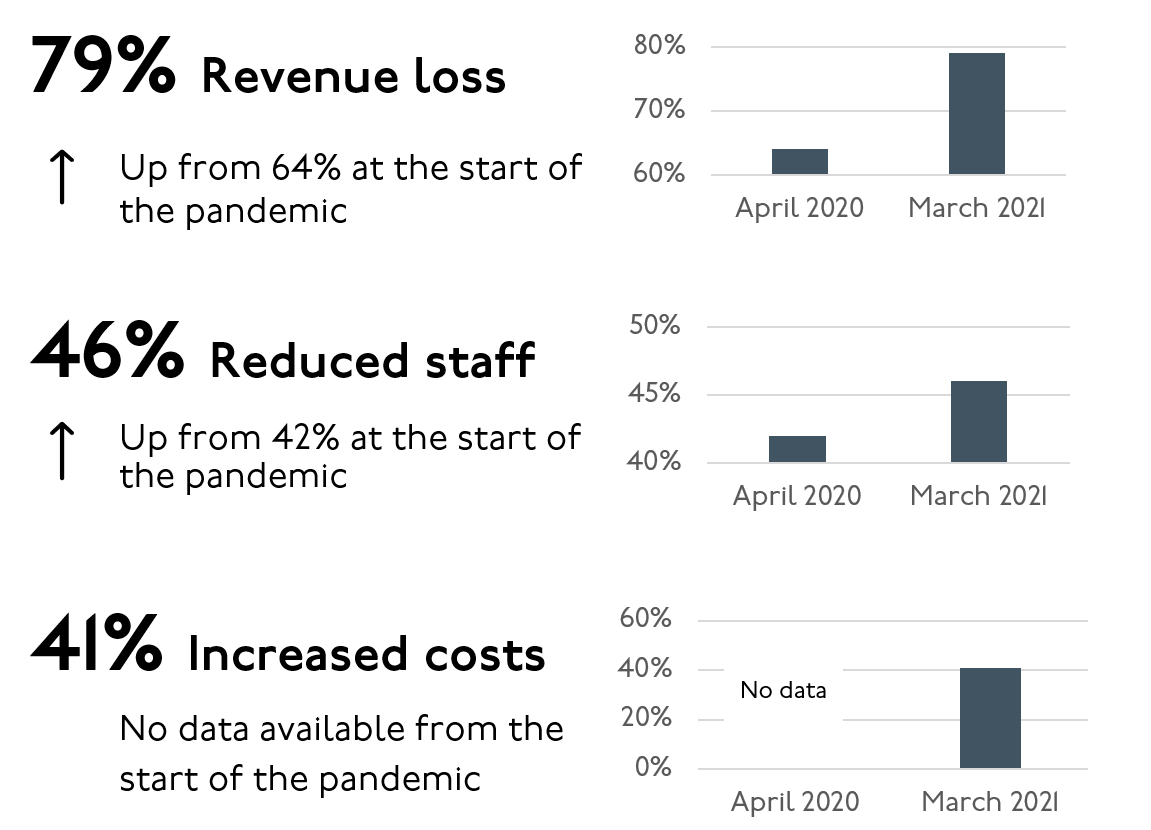
…But the picture is not uniformly negative.
Some businesses still saw growth, but they just were not able to meet their pre-COVID-19 growth forecasts.
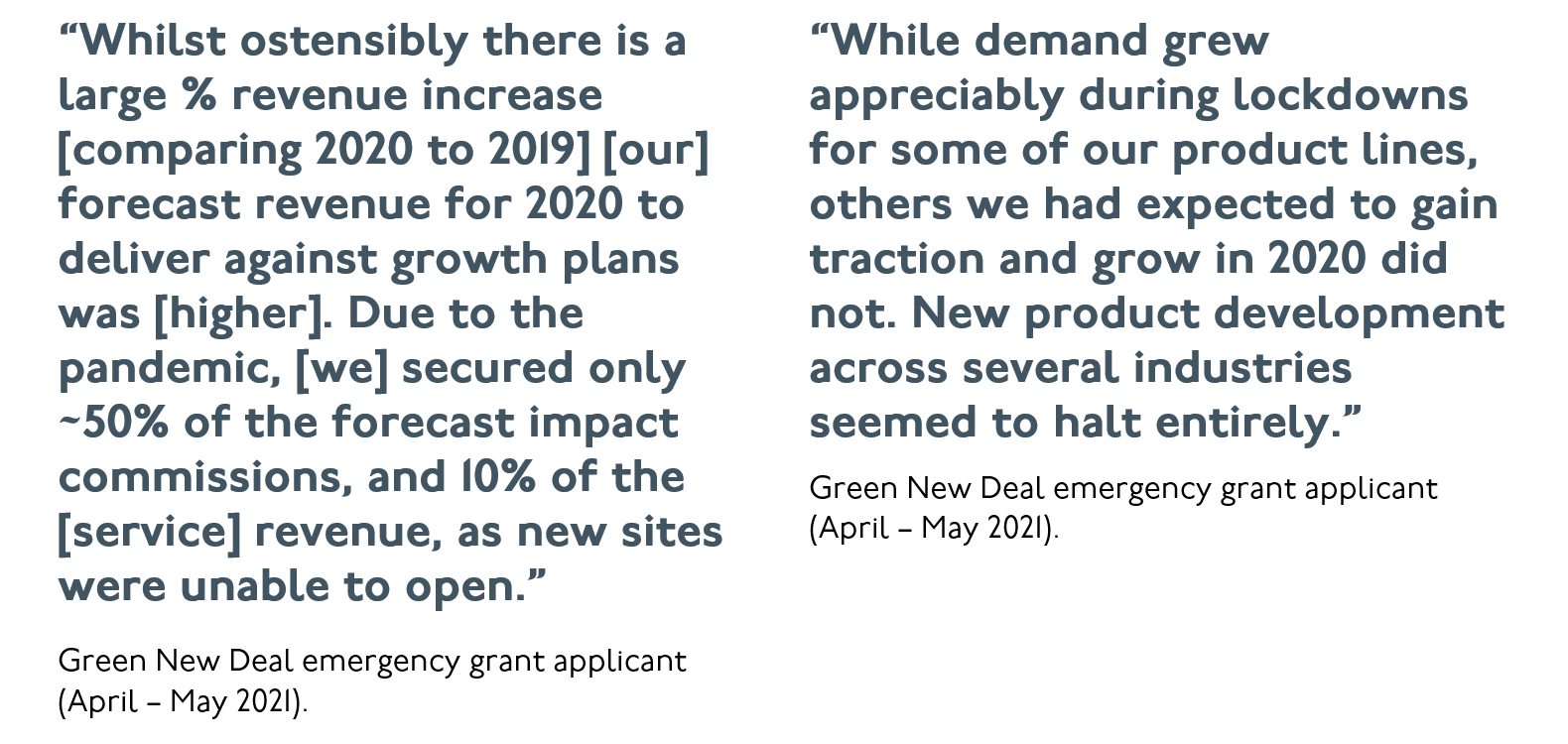
For others, the pandemic presented both challenges and opportunities. We’ve seen this play out across the five circular business models that we advocate for, each of which have seen mixed impacts.

…And it’s possible that the recovery may be faster than expected.
Despite the challenges, London’s circular businesses have proven resilient and adaptable, and continued to contribute positively to the environment.8
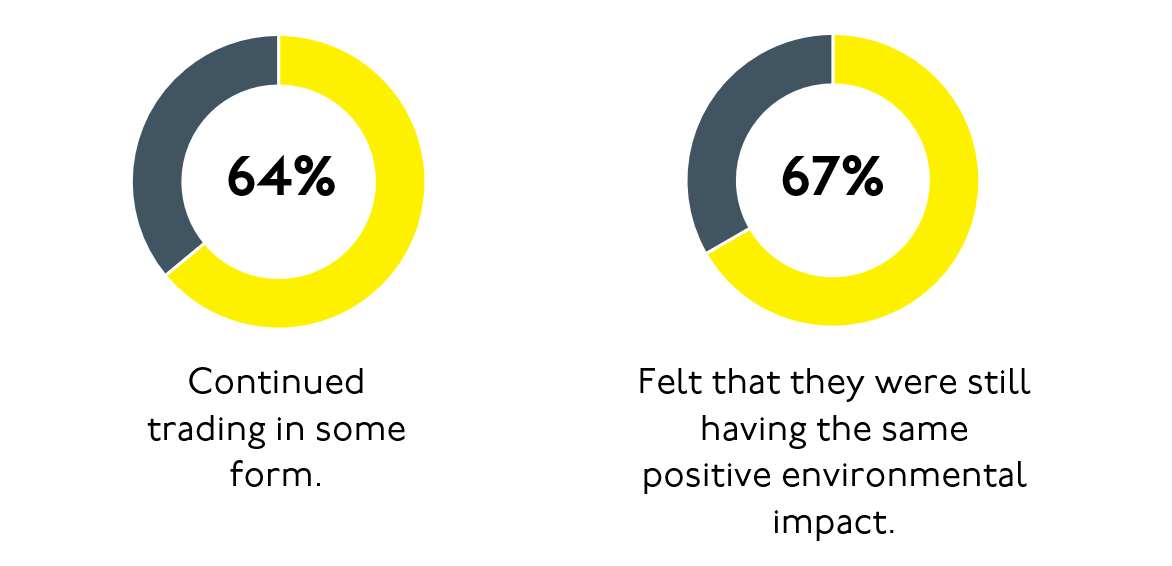
To sustain their business through the pandemic, a significant number changed their business model, pivoting online, building new value propositions, and growing their direct to consumer (D2C) sales channels (as opposed to selling via intermediaries).
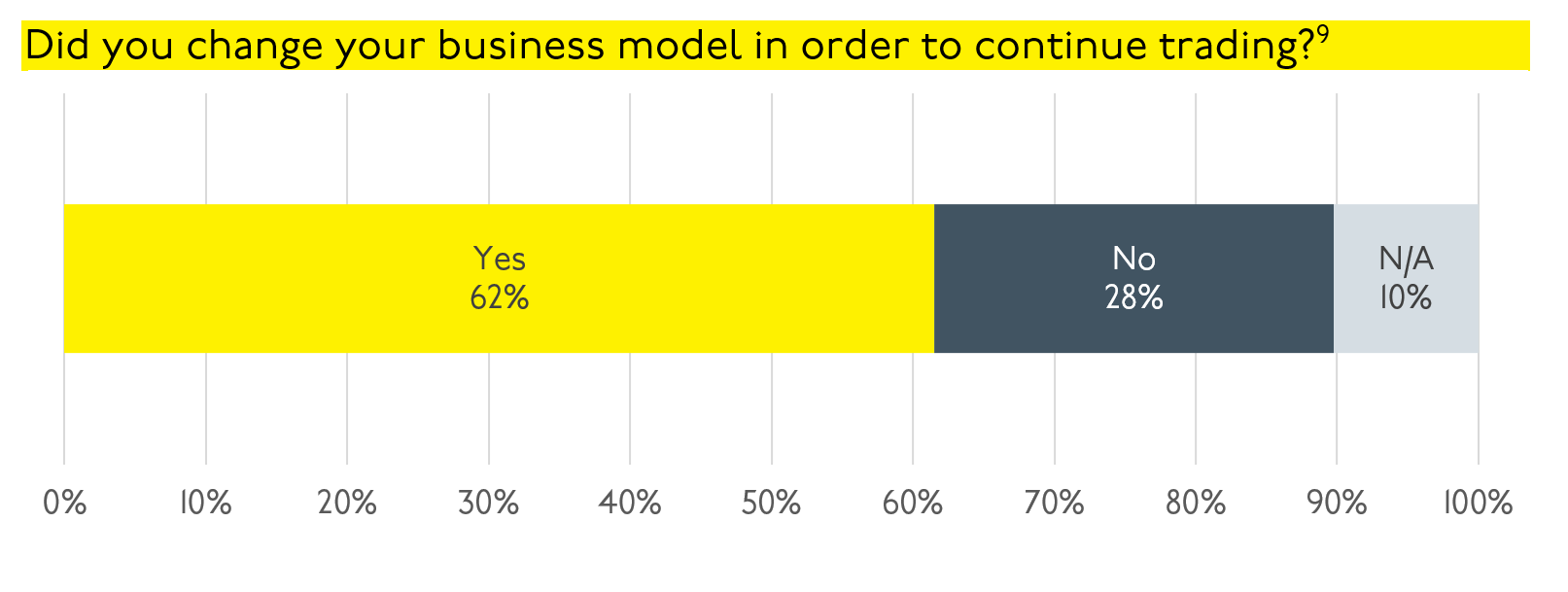
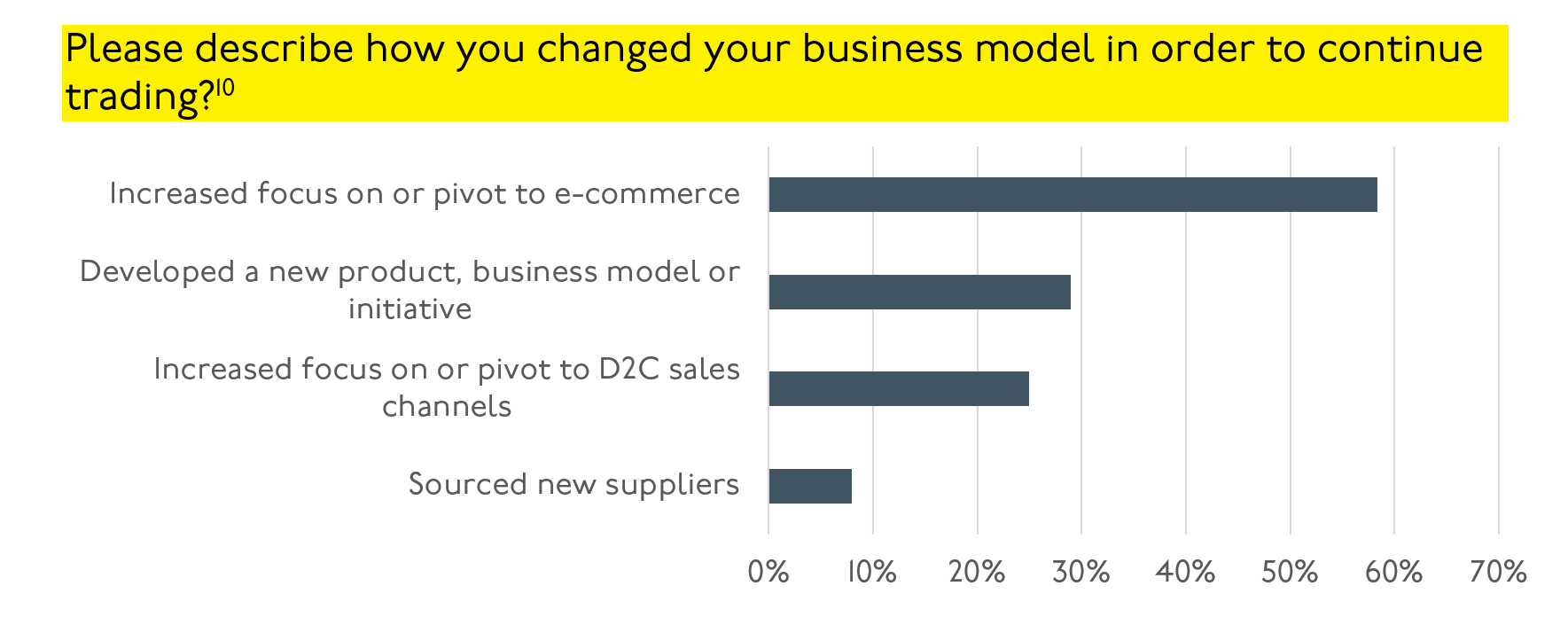
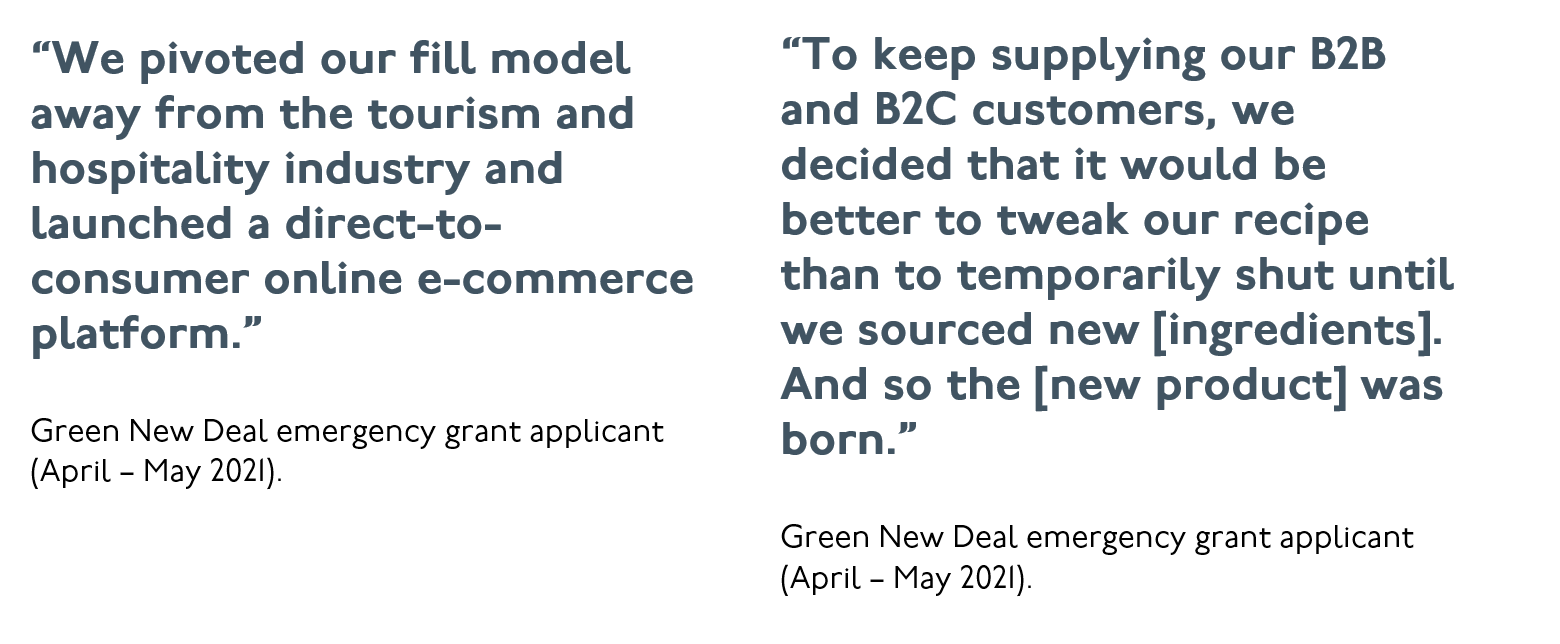
Consumers have adapted too and have high expectations for businesses to act responsibly.11 As London’s economy reopens, circular SMEs that have survived the pandemic – particularly those that have grown their D2C sales channels and marketing – may find themselves strongly positioned for what’s next as more empowered consumers dictate the market and call for sustainability.

Get ready to keep up: now is the time to go circular!
Although the past few months have been difficult, we think there are great opportunities ahead for circular SMEs. Adopting circular business models is a fantastic way to support London’s commitment to reimagine our city as a fairer, greener and more resilient place than it was before the pandemic – and keep up with what we believe will be a rapidly recovered circular ecosystem in London. We’ve spotted four specific opportunities for circular and would-be circular SMEs…
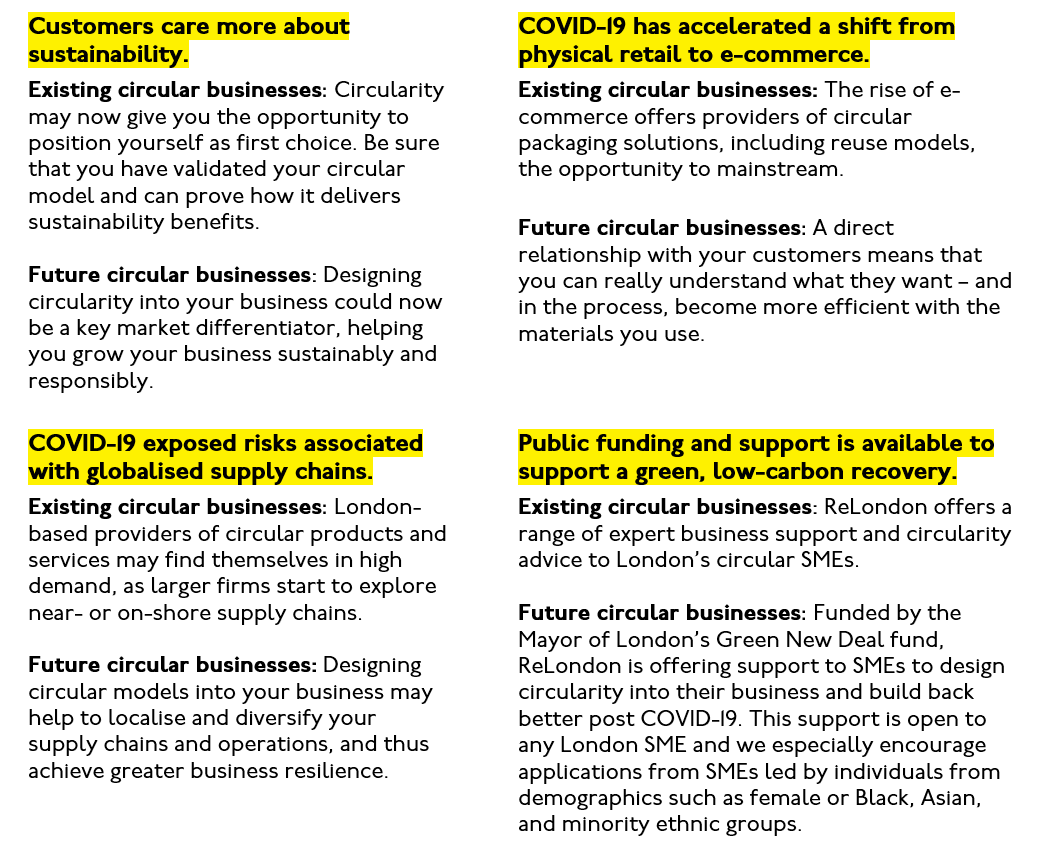
How ReLondon can help
ReLondon’s business transformation team empowers London’s businesses to embrace circularity, transforming the way they work and creating long-term sustainable value and growth. We provide expert, practical, one-on-one support and consultancy to forward thinking corporates, SMEs and start-ups to develop circular business models that are resilient and fit-for-the-future.
Find out more about the support we’re offering forward-thinking London-based SMEs to develop a circular business model that is resilient and fit-for-the-future.
——————————————————————–
[1] ReLondon is a partnership of the Mayor of London and the London boroughs to improve waste and resource management and transform the city into a leading low carbon circular economy.
[2] This note draws on data collected through a one-off questionnaire completed by SMEs (n=50) within ReLondon’s SME portfolio one month into the pandemic (April – May 2020), and data gathered almost a year later (March – April 2021) as part of the application process for emergency cash grants from the Mayor of London’s Green New Deal (n=39). Our samples were small and not representative across industries or geographies, and as such, all trends should be interpreted as indicative rather than precise.
[3] Green New Deal emergency grant applications, March – April 2021 (n=39).
[4] Comparing data gathered in April – May 2020 (n=50) via a questionnaire implemented with ReLondon’s circular SME portfolio with data gathered almost a year later in March – April 2021 (n=39) as part of applications for emergency grant funding from the Mayor of London’s Green New Deal.
[5] BBC (January 2021). Cardboard shortage forces retailers to box clever.
[6] Accenture (August 2020). How is COVID-19 changing the retail consumer?
[7] Forbes (June 2021). War on waste continues as UK hits new record for surplus food distribution.
[8] Green New Deal emergency grant applications, March – April 2021 (n=39).
[9] Green New Deal emergency grant applications, March – April 2021 (n=39).
[10] Green New Deal emergency grant applications, March – April 2021 (n=24).
[11] Accenture (August 2020). How is COVID-19 changing the retail consumer?
[12] Deloitte (April 2021). Four out of five UK consumers adopt more sustainable lifestyle choices during COVID-19 pandemic.


